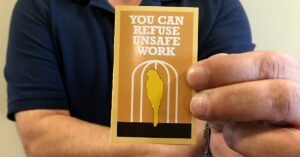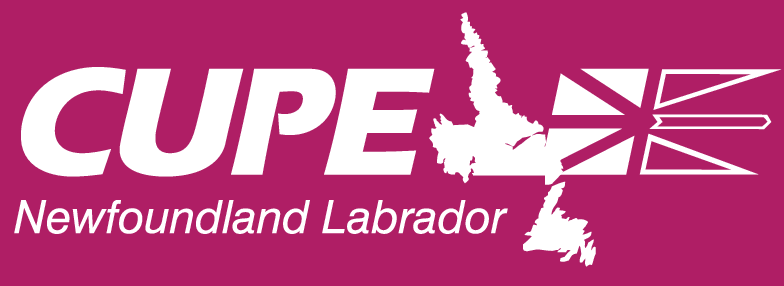All Canadian workers have these four rights to health and safety in the workplace.
The Right to Know
Workers have the right to know what health and safety hazards are related to their work. It is an employer’s legal obligation to tell workers of any hazards they may encounter, the likelihood of being exposed, and the severity of harm if they are exposed. Additionally, employers must ensure that workers know how to keep themselves safe when they deal with hazards that cannot be avoided.
The Right to Participate
Workers have the right to participate in decision-making that impacts their health and safety. This is done by workers selecting a union health and safety representative to discuss health and safety issues with the employer, or by having worker committee members on the Health and Safety Committee. The right to participate also means that workers must report hazards they become aware of to their supervisor, health and safety representative or committee member.
 The Right to Refuse
The Right to Refuse
Workers have the right to refuse to perform work that they believe is unsafe either for themselves or for their co-workers. While procedures and circumstances around the right to refuse may be different between provinces and jurisdictions, just about all workers have the legal right to say no to dangerous work.
The Right to No Reprisal
All jurisdictions have language in their laws that makes it illegal for employers to punish workers when they are following the occupational health and safety laws in good faith. This includes reporting hazards, participating on a committee, and exercising the right to refuse dangerous work. This is an important right because a worker who fears punishment for protecting their health and safety will be less likely to participate in the employer’s system.
Download a copy of the four rights poster.
Read the guide to refusing unsafe work.
For more information, please visit cupe.ca/health-and-safety.
